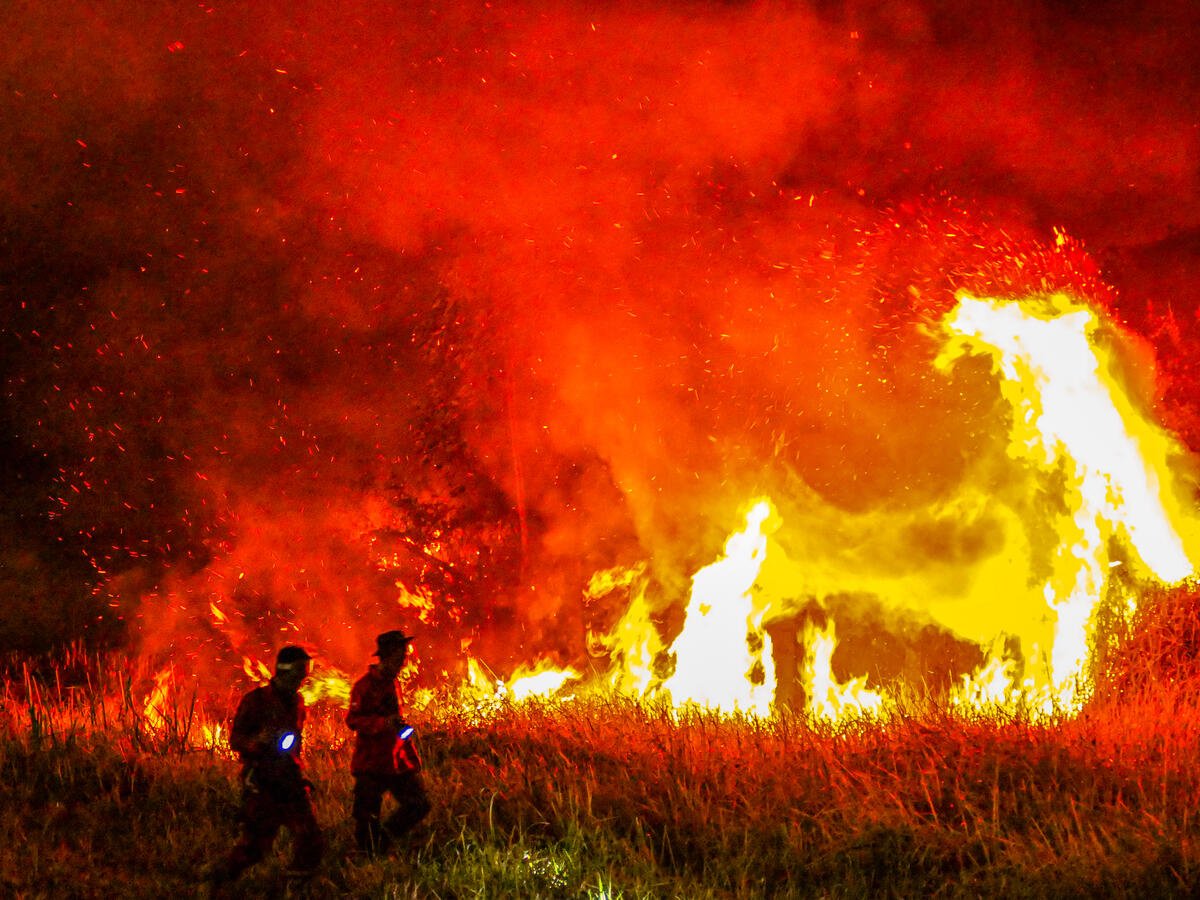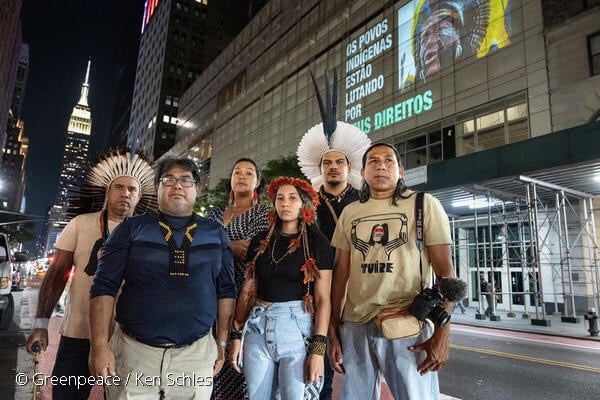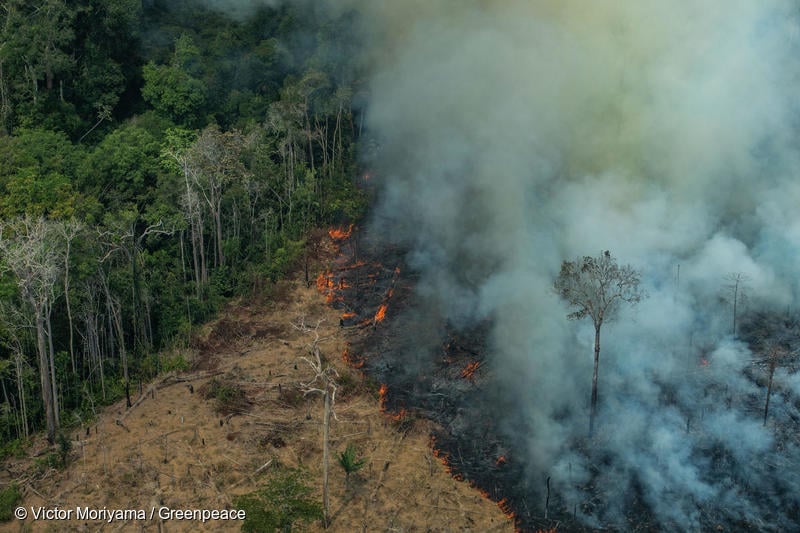In the first quarter of 2022, an area of 941km² was deforested, a record 64 percent increase compared to the same period last year
“Without respecting the rights of Indigenous Peoples, there is no mitigation of climate change.”

Imagem aérea de sobrevoo de monitoramento de desmatamento na Amazônia no município de Lábrea, Amazonas, realizado em 26 de março de 2022.
In the first quarter of 2022, an area of 941km² was deforested, a record 64 percent increase compared to the same period last year
“Without respecting the rights of Indigenous Peoples, there is no mitigation of climate change.”
Manaus, Brazil — Deforestation data alerts released today by the Deter system of the Space Research Institute (Inpe), cover 312 km² (120 mi²) of the Amazon between March 1 and 31st. This is a 15 percent reduction in deforestation compared to the data reported for March 2021. Despite the minor decrease for the month of March, forest destruction for the first quarter (January to March) of 2022 covers 941 km² (363 mi²) — a 64 percent increase compared to the same period last year.
Find exclusive Amazon deforestation images from Greenpeace Brazil here and Free Land Camp here.
On April 4, 2022, the working group III published its contribution to the sixth report (AR6) of the Intergovernmental Panel on Climate Change (IPCC) on mitigating emissions by looking at sources of emissions, commitments, and previous efforts. In the report, Brazil’s past experience in reducing deforestation between 2004 and 2015 is referred to as a “sign of progress” and the Action Plan for the Prevention and Control of Deforestation in the Amazon (PPCDAM) — shelved by the current government — is presented as “a case study of integration for sectoral transition,” while acknowledging the degradation of environmental governance as a barrier.
“Conserving forests and other ecosystems is among the solutions identified by the IPCC to limit global warming to 1.5ºC. However, Brazil, which has all the requirements to be a climate leader, has a federal administration that deliberately walks in the opposite direction, acting in a way that is incompatible with the warnings of science. Stepping back in environmental management has been a clear objective in recent years, and the results are evident in the deforestation alerts of the first quarter of 2022 and in the deforestation records in previous years,” said Cristiane Mazzetti, Amazon Campaigner for Greenpeace Brazil.
According to an analysis by Greenpeace Brazil, only in Indigenous Lands, the area with deforestation alerts registered in the first quarter of 2022 (amounting to 749 hectares until March 25th) had an increase of 52 percent in relation to the same period (considering March closed with 493 hectares) in 2021. Deforestation in these regions should be zero, but these areas have suffered from invasions by land grabbers and prospectors. Currently, more than 7,000 Indigenous Peoples from 200 ethnic groups are organized in the Free Land Camp 2022 (ATL) in Brasília (DF), to demand the demarcation and defense of their territories and protest against the anti-Indigenous agenda currently trending in the National Congress, such as Bill 191/2020, which aims to open up Indigenous lands for mining.
“Without respecting the rights of Indigenous Peoples, there is no mitigation of climate change, any serious ruler and politician should at least honor the constitution and guarantee the rights of Indigenous Peoples, in addition to promoting the recognition of Indigenous territories, a strategy that has already proven to be effective to reduce deforestation, but what we see is the opposite of that with projects that promotes exploitation in Indigenous lands and the total stoppage of demarcation,” concludes Mazzetti.
Contact:
Karen Mota, Press Officer, Greenpeace Brazil: +55 11 97252-6867, [email protected]



